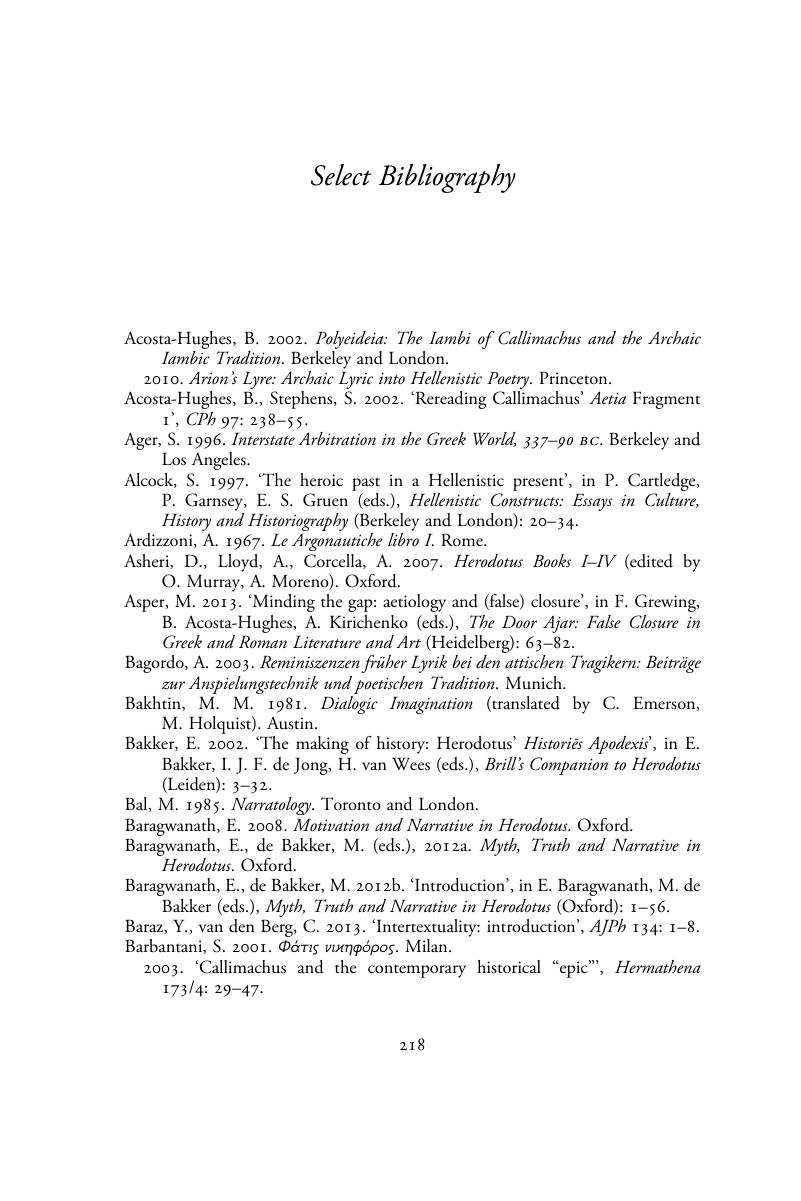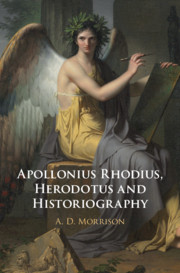Book contents
- Apollonius Rhodius, Herodotus and Historiography
- Apollonius Rhodius, Herodotus and Historiography
- Copyright page
- Dedication
- Contents
- Preface
- Abbreviations
- Introduction
- Chapter 1 Receiving Herodotus
- Chapter 2 Creating Authorities
- Chapter 3 Explaining the Past
- Chapter 4 Telling Stories
- Chapter 5 Greeks and Non-Greeks
- Chapter 6 Kings and Leaders
- Conclusions and Consequences
- Select Bibliography
- Index of Subjects
- Index of Passages
- References
Select Bibliography
Published online by Cambridge University Press: 13 January 2020
- Apollonius Rhodius, Herodotus and Historiography
- Apollonius Rhodius, Herodotus and Historiography
- Copyright page
- Dedication
- Contents
- Preface
- Abbreviations
- Introduction
- Chapter 1 Receiving Herodotus
- Chapter 2 Creating Authorities
- Chapter 3 Explaining the Past
- Chapter 4 Telling Stories
- Chapter 5 Greeks and Non-Greeks
- Chapter 6 Kings and Leaders
- Conclusions and Consequences
- Select Bibliography
- Index of Subjects
- Index of Passages
- References
Summary

- Type
- Chapter
- Information
- Apollonius Rhodius, Herodotus and Historiography , pp. 218 - 232Publisher: Cambridge University PressPrint publication year: 2020



